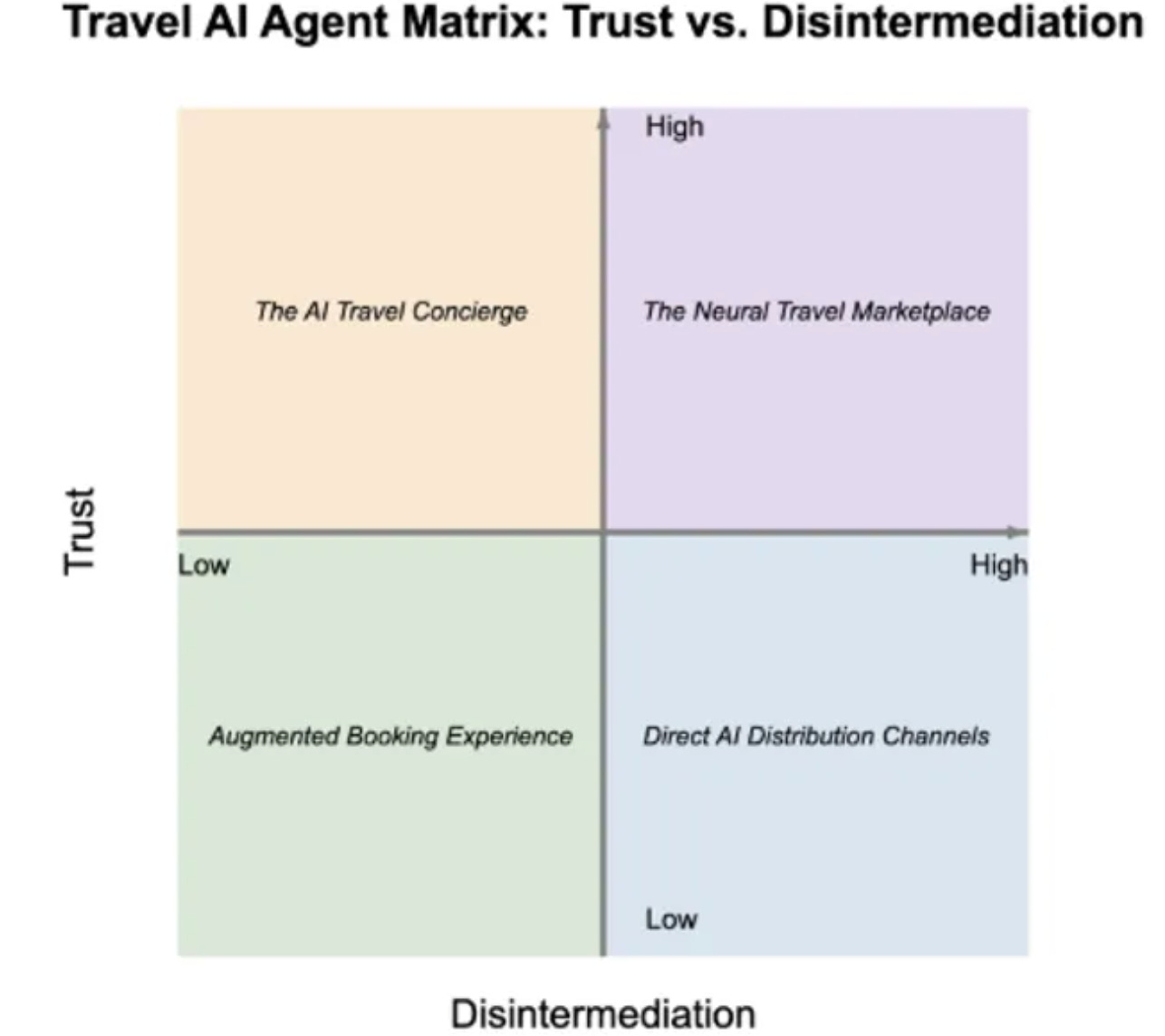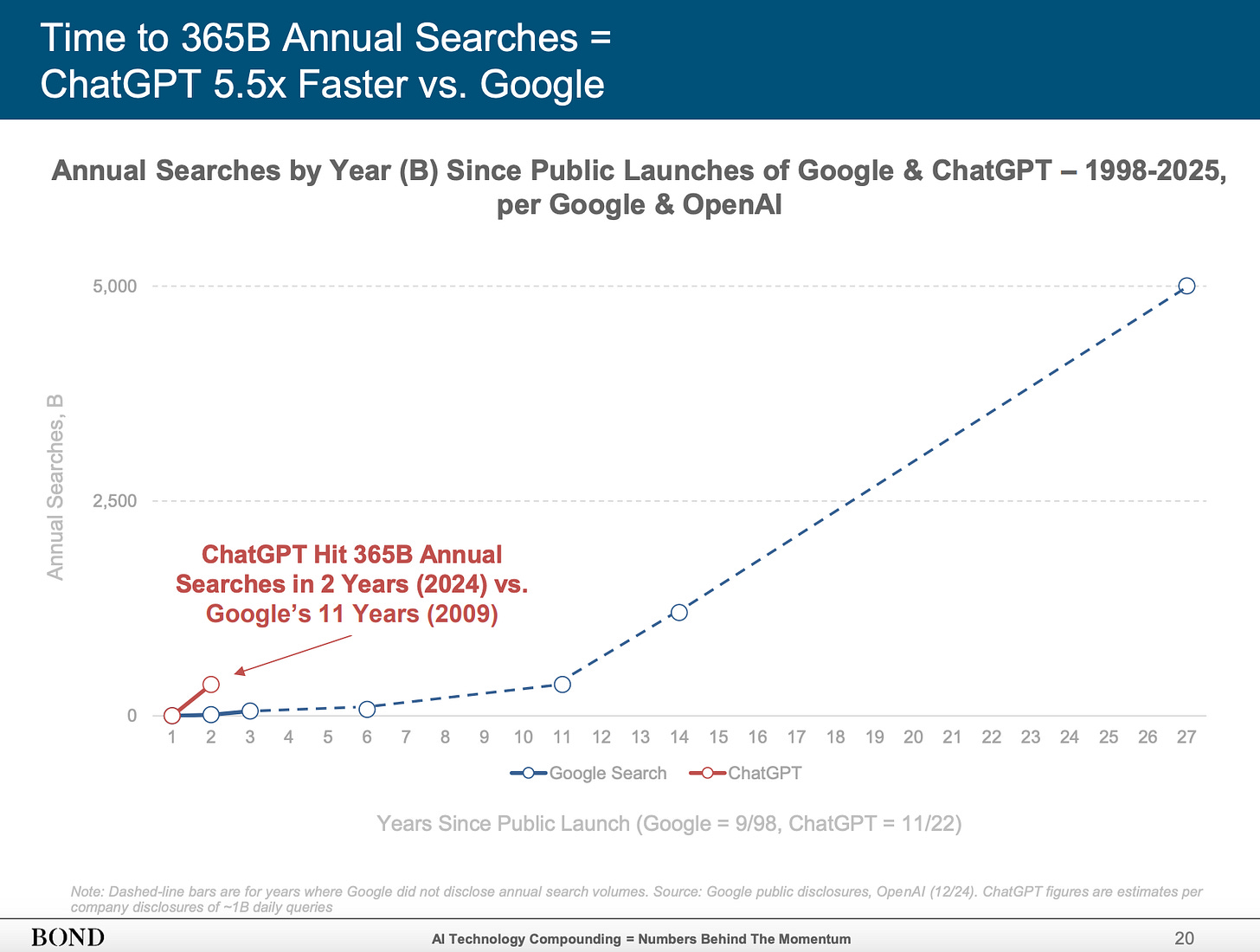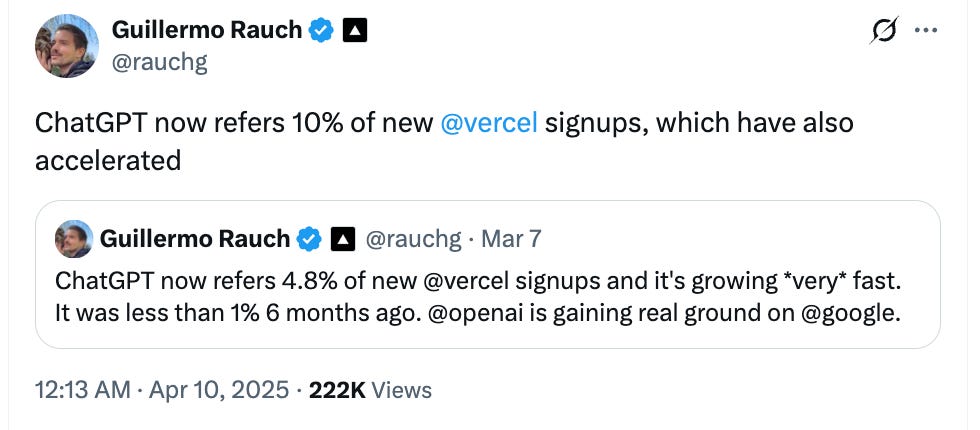Interfaces are changing fast. Screens are shrinking, chat is replacing search, and AI agents are starting to act on our behalf. For travel, that shift changes how decisions get made, how products get discovered, and who controls the experience.
And it’s not just about redesigning for current users. As 2.6 billion people come online for the first time, likely through AI, not browsers, they’ll skip straight to an agent-first experience, in their own language and context.
This issue looks at the new dynamics; from ambient devices to agentic shopping, from shrinking UIs to SEO’s next chapter. The interface is moving. Where it lands will define the next generation of travel products.
Special thanks to Dune7 for sponsoring this edition of the newsletter:
Dune7 teamed up with Skift Research to create the Travel AI Overview Visibility Index, offering unparalleled insights into how AIOs impact brand performance and user engagement. Explore initial findings on the Dune7 blog:
– How AIOs work
– Their impact on travel brand visibility
– Websites dominating AI OverviewsSchedule a free consultation with our travel marketing experts and learn how to thrive in an AI-centric search landscape.
0. Most clicked in the previous newsletter
The most clicked link in the last issue wasGoogle kills the checkout, on how Google’s new “Shop with AI mode” lets users discover and buy products directly from search.
1. The agentic travel future is taking shape
Mario Gavira (VP Global Growth and Brand at Kiwi.com) just published 4 Scenarios on the Future of Agentic AI in Travel with a sharp framework for how AI agents could reshape travel. He outlines four possible futures, based on two variables: how much users trust their agents, and how much those agents bypass OTAs to book direct.
This shift is already happening. Since January, we’ve seen agentic checkout via Google Pay, LLM-powered shopping assistants from ChatGPT and Perplexity, and a new interoperability standard (MCP) that lets AI plug into nearly any site.
The LinkedIn debate that followed is worth reading. Most agree that interfaces are shifting, and the fight for distribution is just beginning. Some see Google as the frontrunner if it can shift from search to agentic referrals without losing user trust. Others argue OTAs will be showroomed and cut out. Some believe OTAs still have the edge, thanks to their infrastructure and scale. And many see this moment as a genuine opportunity for new players, built for the agentic era.
2. The Shrinking of Interfaces
Felix Hass, Designer and angel investor at Lovable, argues that AI is shrinking interfaces. Traditional apps were built around rigid flows because computers needed help understanding us. However, with AI, that assumption is reversed. If the system already knows our preferences, intent, and constraints, there’s no need for 10 screens.
Products optimized for traditional UI flows may struggle to compete with AI-native experiences. Multi-screen booking flows may soon feel antiquated. Smart design today means asking: What are the most essential elements I truly need? And what can I reduce to the absolute minimum?
We’re moving from apps with 10 screens to apps with one. From cluttered interfaces to minimal triggers. The smarter the system, the less UI you need. Eventually, the best UI might be no UI at all. — Felix Haas
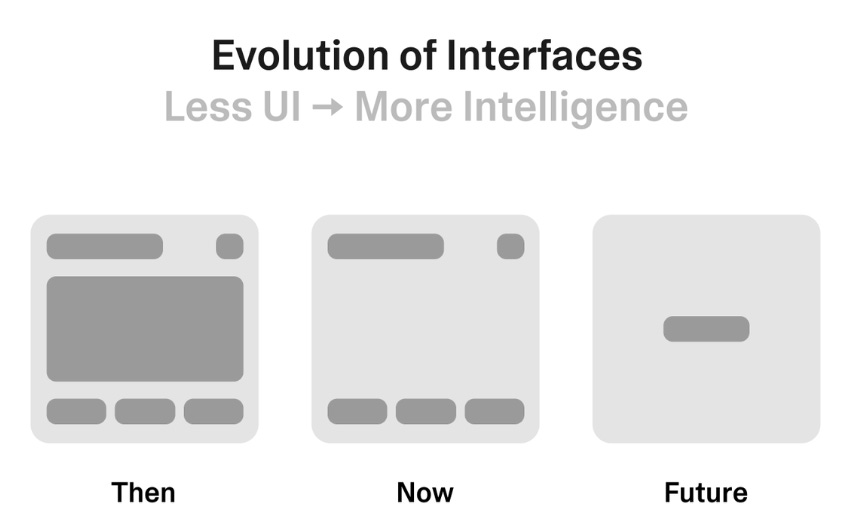
3. Jony Ive and Sam Altman are building the hardware for what comes after screens
Jony Ive and Sam Altman are collaborating on io, with the goal of creating a new kind of device for how we’ll interact with AI; not through search bars or apps, but something more ambient, contextual, and integrated into daily life. This could fundamentally change where and how decisions happen.
This matters for travel because most travel products today are still optimized for “legacy” platforms like web and mobile. These workflows rely on the user initiating all actions. But if io succeeds, we may be moving toward a world where decisions are shaped not through clicks and taps, but through ever-present systems that understand intent and act accordingly.
That indicates a significant shift in distribution, engagement, and user behavior. When the internet reshaped commerce, online-native companies won. The same pattern could repeat. Today’s web and mobile-native players may struggle with whatever the next interface becomes. There’s no reason to assume the incumbents win this time; history suggests they won’t.
This could be the beginning of a new platform and a new generation of companies and products built for it.
“I have a growing sense that everything I have learned over the last 30 years has led me to this moment.” — Jony Ive, Legendary designer behind the iPhone, iMac, and much of Apple’s most iconic hardware
4. Utility vs Emotional Travel
Rex Woodbury wrote about Agentic Commerce, a future where AI handles routine purchases that are fast, functional, and easily delegated.
That distinction between utility and emotional shopping is a helpful lens for travel. Booking a last-minute hotel at the airport can be pure utility. Planning a milestone trip or choosing a once-a-year destination is more emotional. People want to explore, compare, and feel inspired.
Rex’s point is that AI agents are well-suited to handle utility-driven commerce, where the goal is to save time. Emotional shopping, on the other hand, is more about discovery and serendipity, and it may resist full automation.
For travel companies, this means clarity on what part of the journey you’re serving. If you’re focused on repeatable, functional use cases, build for agents. If you’re aiming for inspiration and exploration, build for humans.
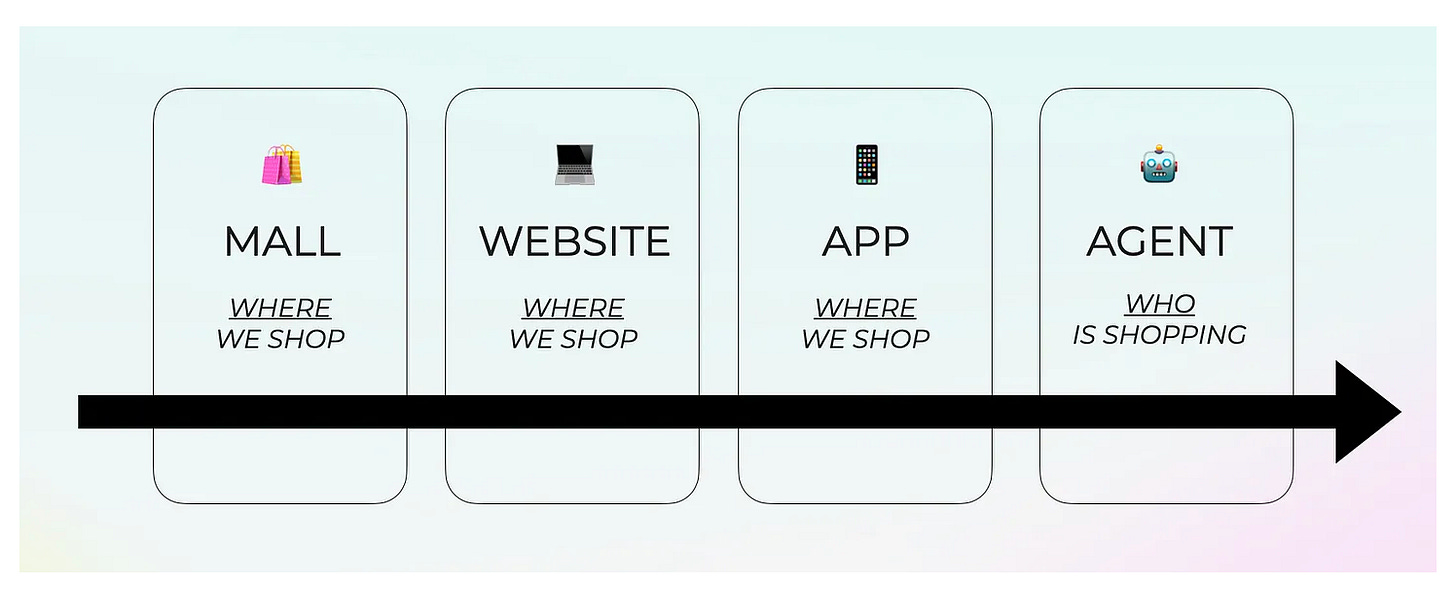
5. The Next Curve After E-Commerce? Agent Penetration
These charts illustrate a simple yet powerful shift: over the past 25 years, commerce has transitioned from offline to online. The next 25 may be about moving from human-driven to agent-driven.
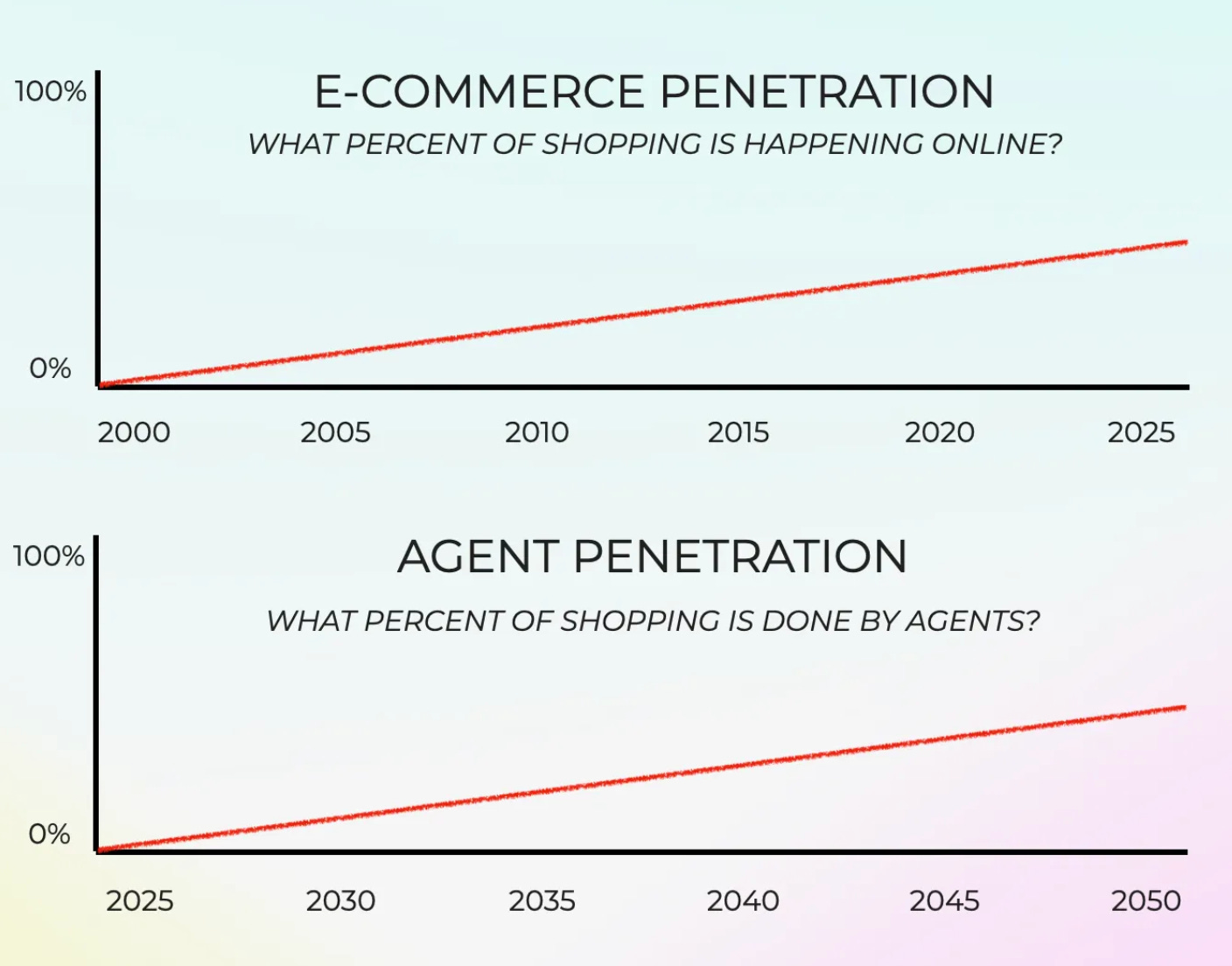
The interface shift we’re entering isn’t just from screen to voice, or from form to chat. It’s a shift in who is doing the work. In many cases, software agents will shop, compare, and decide on our behalf. For those utility-driven transactions, the winners will be the brands that are discoverable, trusted, and easy to work with (by machines).
6. Mary Meeker’s AI Trends Deck
Mary Meeker’s Internet Trends reports shaped a generation of tech thinking. She helped a generation of founders, operators, and investors understand the shape of the future. Now she’s back, with an AI-focused deck that’s just as dense, data-rich, and widely shared. It’s a comprehensive, 340-page overview of the current state of AI, covering topics such as user growth, user behavior, capital flows, platform dynamics, revenue models, and geopolitics.
7. The return of high-touch hospitality at scale
Wander just raised over $50 million in Series B funding, led by QED and Fifth Wall. The company began with a vertically integrated model, purchasing luxury vacation homes and controlling the entire guest experience. When interest rates rose, Wander shifted, adopting an asset-light, software-powered model that now encompasses over 1,000 premium properties. Wander Operated lets them fully manage third-party homes, while Wander Branded offers owners access to its booking engine and concierge tools. At the center is WanderOS, a proprietary stack that orchestrates everything from guest communications to property inspections to vendor coordination, all without requiring local staff. The result is a 6x growth in GMV in 18 months, an NPS of over 85, and 70% gross margins on managed homes.
Some takeaways
-
The future of premium stays might not be “more Airbnb,” but something more curated and high-service
-
Owning inventory isn’t a prerequisite if the software can standardize quality
-
Guests will reward consistency and service even at higher price points
Wander aims to deliver the best experience, rather than being the biggest platform. In a category where many tech players treat operations as a necessary evil, that focus becomes a meaningful strategic advantage. Read + Not Boring
8. From Ranking to Mentioning. From SEO to GEO.
As search shifts to chat, the interface moves from links to answers. That changes how discovery works, how trust is built, and how products grow. The game has changed: you’re competing for mentions, not rankings.
For the past 20 years, SEO has driven online growth. Brands won by ranking high on Google. But in AI-powered interfaces, the mechanics are different. It’s not about feeding the content engine; it’s about being the answer.
Zach Cohen and Seema Amble of a16z call this shift Generative Engine Optimization (GEO), in their recent report, How Generative Engine Optimization Rewrites the Rules of Search. GEO is the competition to get into the model’s mind. And timing matters. The shift is still early, but ad dollars move fast, especially when there’s arbitrage. Google search drove growth in the 2000s. Facebook targeting defined the 2010s. In 2025, it’s LLMs and the platforms that shape how content is remembered, referenced, and surfaced.
In a world where AI is the front door to commerce and discovery, the question for marketers is: Will the model remember you?
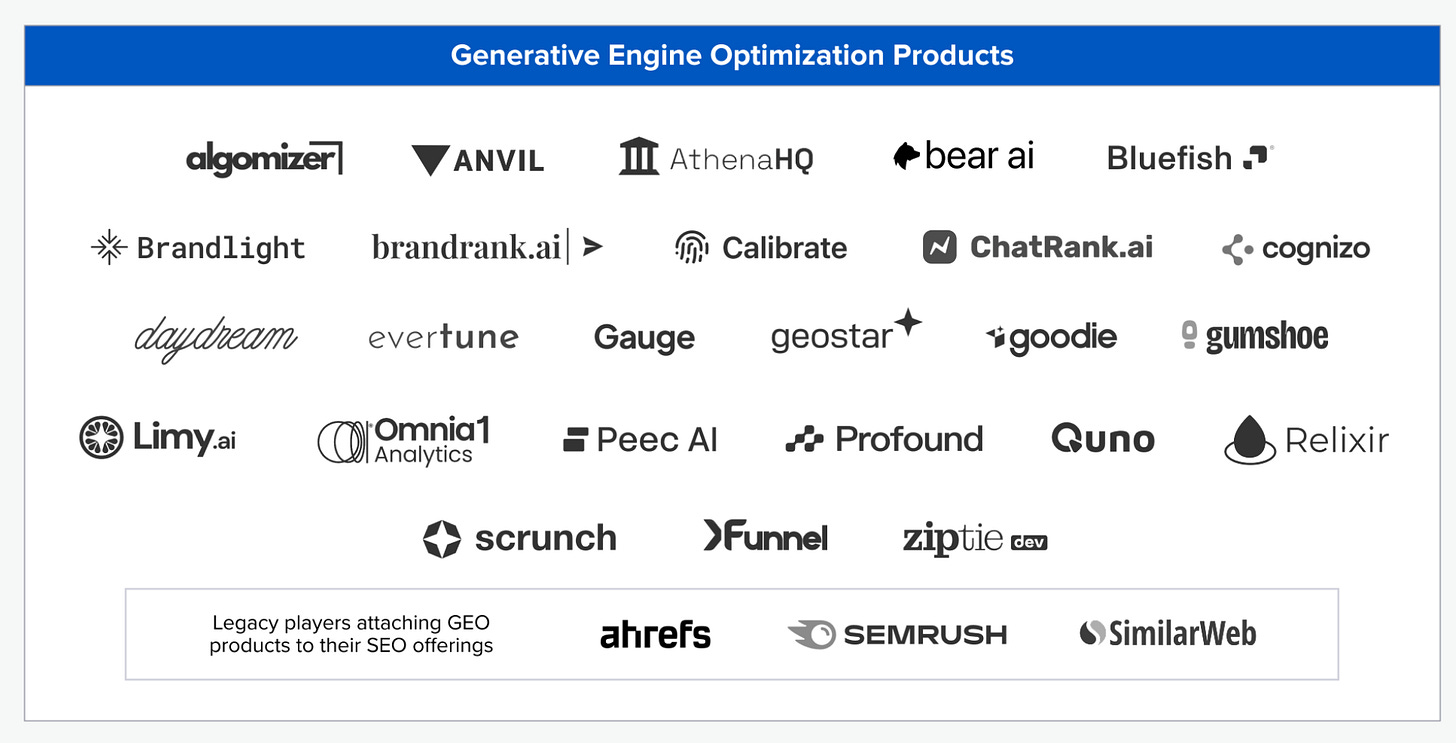
9. ChatGPT Is Becoming a Growth Channel
Vercel powers over 4 million websites, including Walmart, Apple, and Netflix. It’s a go-to platform for modern web development and a good signal for developer behavior.
In September 2024, less than 1% of Vercel signups came from ChatGPT. By March 2025, it was 4.8%. One month later, it doubled to 10%.
LLMs are becoming distribution channels, starting to do what Google Search did in the 2000s.
10. The Accessibility Data Layer for Travel
30% of the global population (2.6 billion people) has accessibility needs, controlling $120 billion in annual travel spending. Yet 97% of travel content lacks verified accessibility information. Most OTAs offer filters with little to no verification. Hotels share thread counts, but often can’t say if a wheelchair user can reach the bathroom sink.
Wheel the World is tackling this not by fixing hotels, but by fixing the information. They’ve mapped over 4,000 properties across 80 destinations, with more than 200 verified data points per listing. That data powers a growing B2B and B2C flywheel.
I just published a Deep Dive on Wheel The World. That spending ($120 billion annually) is happening despite poor service. The real opportunity is much larger, and only growing as the global population ages.
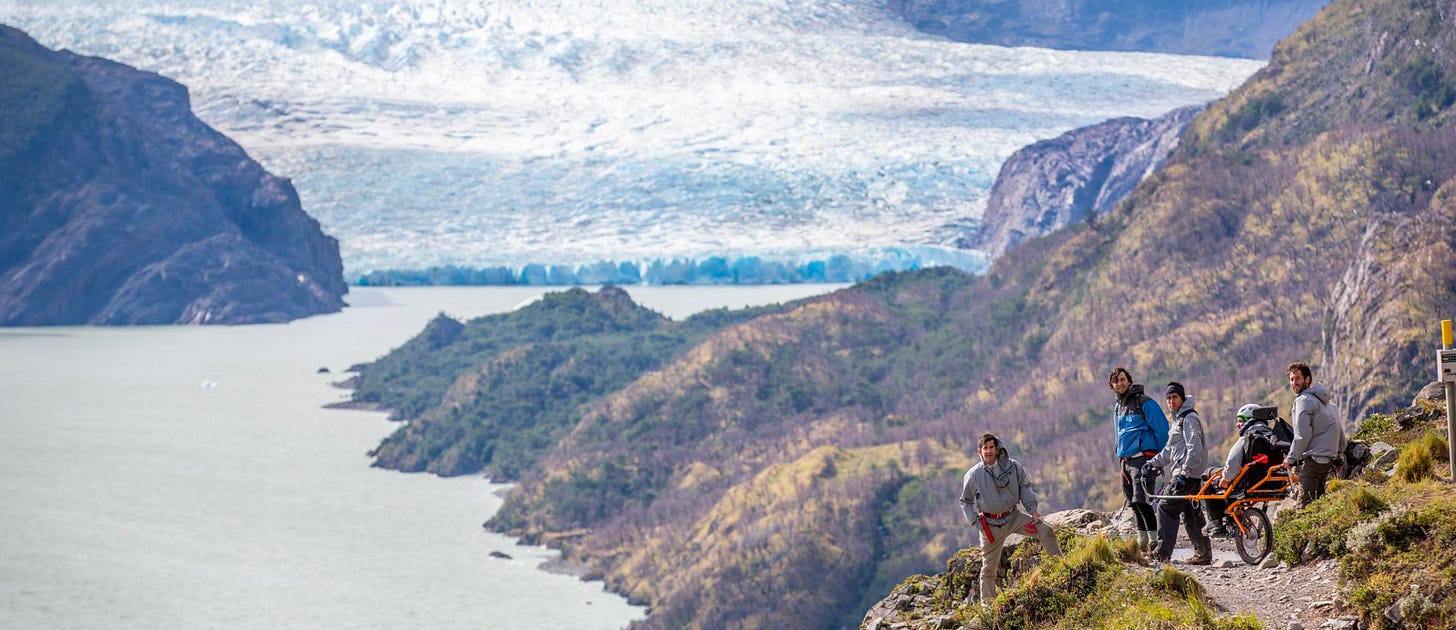
Travel Tech Essentialist Job Board
→ Explore all 1,339 open travel tech roles on the Travel Tech Essentialist Job Board now.
-
Fora | AI Innovator | New York City | $110,000 – $150,000 + Equity
-
Airbnb | Data Scientist | USA | $148,000 – $174,000
-
TravelPerk | UI / Design Systems Manager | Barcelona
💼 Employers: List your job openings here by completing this quick form
📩 For monthly updates on the latest roles, subscribe to the Travel Tech Jobs newsletter
Raising a round?
If you are a startup looking to raise a round (from pre-seed to Series D), I can help (for free). Travel Investor Network is a private platform where I recommend innovative travel startups to investors and innovators. If you’re interested, please start by completing this form.
If you like Travel Tech Essentialist, please consider sharing it with your friends or colleagues. If you’re not yet subscribed, join us here:
And, as always, thanks for trusting me with your inbox.
Mauricio Prieto



